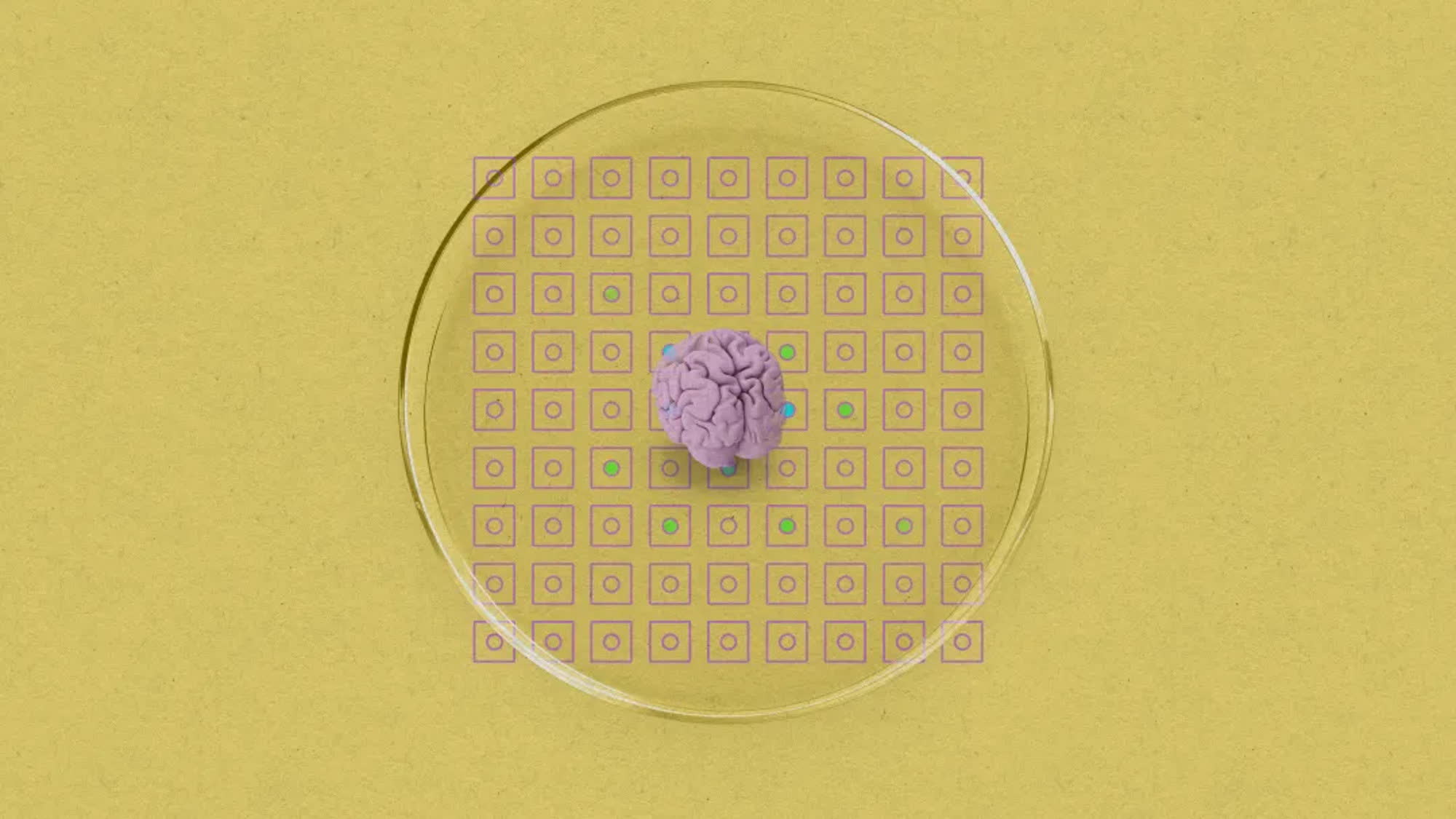Cyber-punked: A functional blend of biology and microchips for novel bio-computing applications is yet to materialize outside science fiction stories. Thanks to ‘Brainoware,’ scientists believe they have started to witness the early stages of a genuine AI-compatible bio-computer.
Feng Guo and a team of researchers at Indiana University Bloomington have created “brain organoids” by growing clumps of human brain cells in a dish. They then connected these biological organoids to a computer chip, creating the Brainoware system, which can seemingly execute computing tasks while “talking” with an AI algorithm for signal decoding.
Recently published in Nature Electronics, the research describes “brain-inspired computing hardware” that aims to emulate the structure and working principles of the human brain. Brainoware has the potential for processing, learning, and even remembering information, the researchers say, and could supply a solution to address limitations in current artificial intelligence technologies.
While AI algorithms running on silicon chips are extremely efficient (and effective) in dealing with large datasets, they cannot rival the human brain’s ability to process complex information while consuming very little energy. The brain organoids in Brainoware are actual brain cells that can send and acquire information encoded through electrical signals, according to Guo.

When the researchers applied electrical stimulation to Brainoware, the hybrid bio-chip setup responded to those signals. The neural network the system was attached to also showed changes, suggesting that the system was indeed able to process information and maybe even perform computing tasks “without supervision.”
The researchers tested Brainoware’s alleged capabilities with speech recognition tasks, using 240 sound clips recorded by eight people pronouncing Japanese vowels. The clips were converted into electrical signals and then fed to Brainoware, which generated an electrical response that was subsequently fed to the AI tool for decoding.
The brain organoid-AI setup was ultimately able to decode the signals from audio recordings, according to Guo, but the form of speech recognition provided by the tech had a ‘”very low” accuracy level. Accuracy improved up to 87 percent with encourage training sessions, but it was still less accurate than actual, fully digital artificial neural networks.
Some researchers have expressed doubts about the results described in the new research. Lena Smirnova, an assistant professor of public health at Johns Hopkins University, stated that brain organoids have no way to actually “hear” speech; they can only exhibit a reaction to electrical stimulation. Furthermore, the research did not display whether and how Brainoware could process and store information over the long term or learn multiple tasks.

